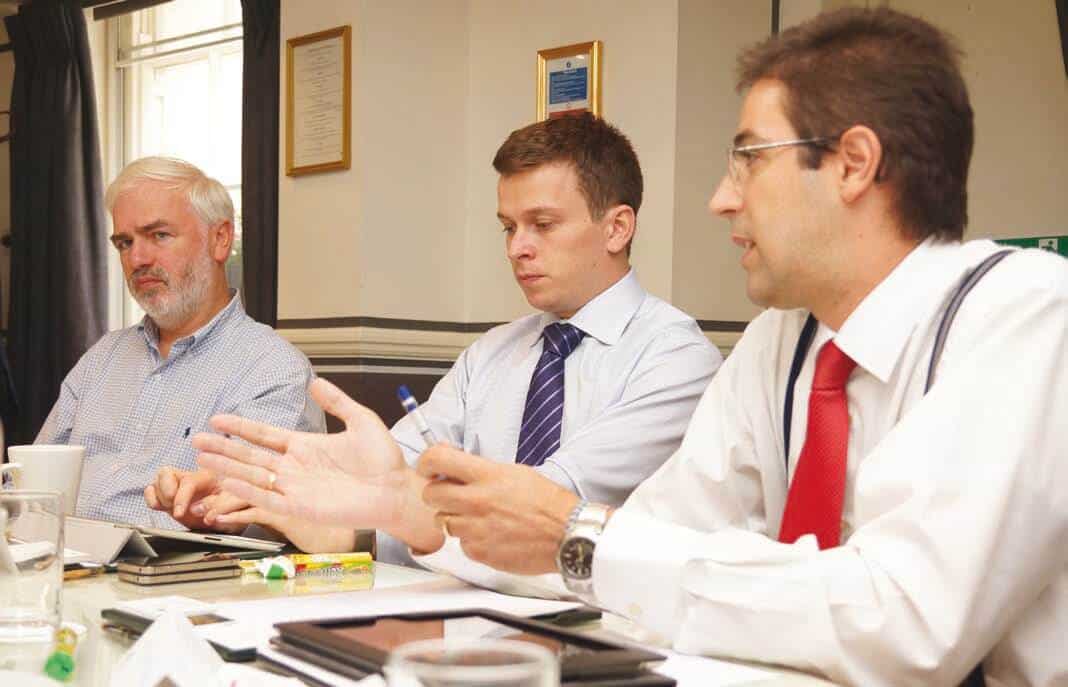
From left – Daragh Moore (ESB Networks, Ireland), Jamie Bishop (Tait Communications) and Alberto Sendín (Iberdrola)
The current state of communications networks used by utilities is not ideal.
That was the key conclusion reached by a Communications for Utilities roundtable event held in London, convened by British radio magazine, Land Mobile.
The international panel of experts included representatives from Ofcom – the UK’s telecoms regulator – the European Utilities Telecom Council (EUTC), and guests from ESB Networks, Ireland, Spanish utility, Iberdrola and EDP Distribution, Portugal.
The roundtable, sponsored by Tait Communications, covered a broad range of topics including the balance between wired and wireless communications in utility networks, trade-offs between the use of public and private telecoms networks, and the impact of government regulation. The panel also shared their expectations for the future, including voice and data applications and the role of IP.
As well as the consensus around the general state of utilities’ communications networks, the roundtable agreed on several other key conclusions:
- Utility organisations are currently using a number of linked communications systems, including both private and public networks. Utilities are finding it increasingly difficult to get the correct frequency bands assigned to achieve communication between secondary substations to meters in their smart grid.
- The need of a private communications network is critical in order to obtain a fully functioning smart meter. Currently utility organisations are relying on public networks to provide the backbone to their own communications network, and it was widely agreed that this can present issues in critical situations. In emergency situations – particularly terrorist activities – public networks tend to be shut down; how can a utilities organisation ensure that their network is working in these situations?
- The panel agreed that radio communications play a strong role in resiliency of a utility’s communications network, but that there are further challenges that have to be met.



